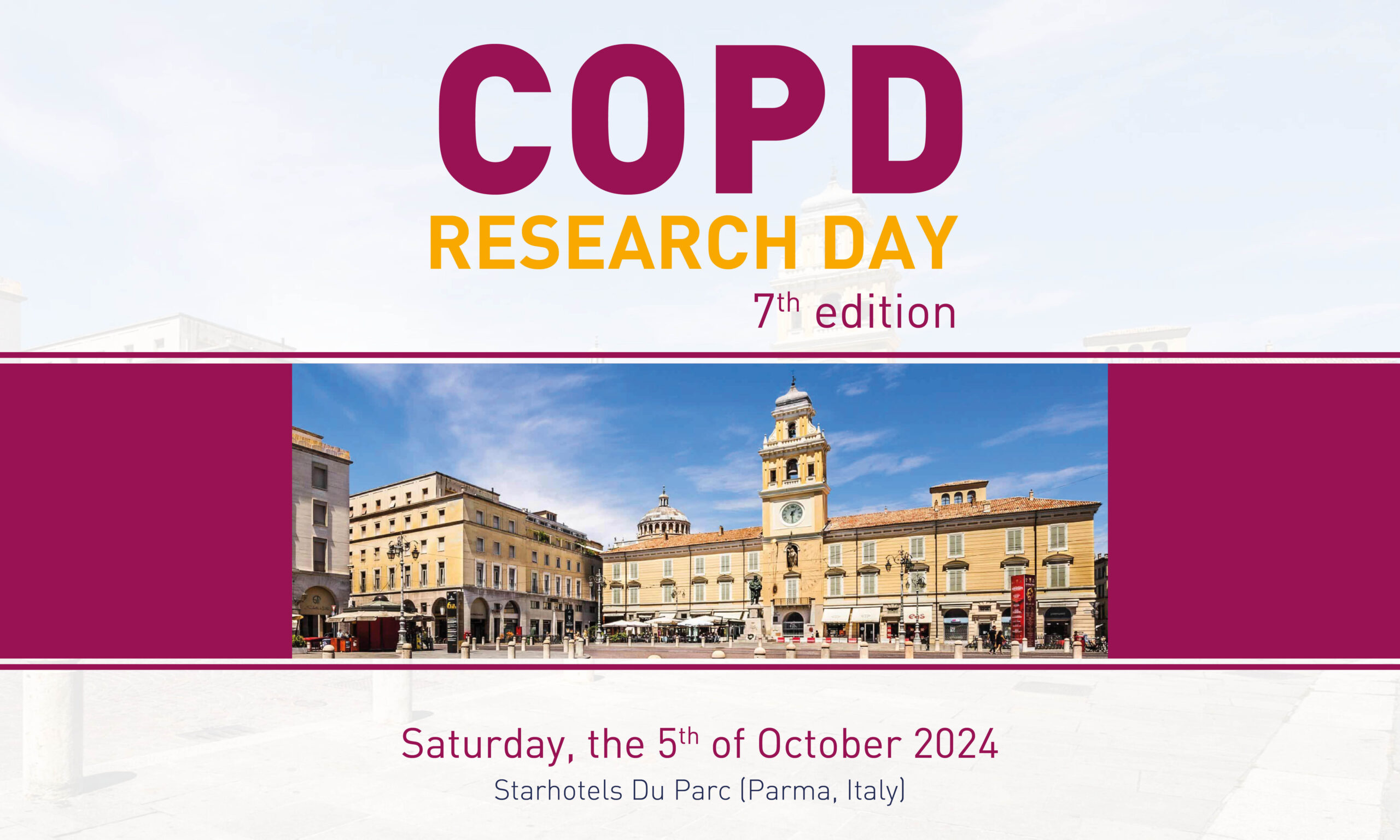
COPD 7th edition
PRESENTATION
There are many reasons why chronic obstructive pulmonary disease (COPD) deserves to be high on the list of disease targets and research. COPD is still a major public health problem because has an high prevalence and it is a leading cause of morbidity and mortality worldwide creating a formidable challenge for the healthcare systems. COPD is one of the most frequent causes of unscheduled visits in the offices of general practitioners and specialists and of emergency wards visits and hospital admissions. Furthermore COPD, causes 3.2 millions of deaths worldwide and represents one of the top causes of death among the Italian population. In addition, COPD care, both directly and indirectly, use a substantial amount of the resources of Italian National Health Service, with a significant impact on social expenses. Despite recent trends in reduction of COPD standardized mortality rates and some recent successes in anti-smoking efforts in a number of Western countries, the overarching demographic impact of ageing in an ever-expanding world population (~ 8.1 billion in February 2024), joined with other factors such as the high rates of cigarette smoking, will ensure that COPD will remain a challenge for clinicians within the 21st century epidemiologic point of view.
For every COPD patient that physicians could avoid putting on a long-term ventilator and/or oxygen therapy this will save an enormous amount of money of the Italian National Health Service.
Regione Emilia-Romagna has one of the best attractively (requests of being cured from other Italian regions) mobility of Italy for COPD patients.
Current personalised treatment of COPD is still unable to completely modify the natural history of the disease in its different and complex clinical phenotypes or to fully satisfy the expectations of the patients. In addition there are molecular links, still largely under investigated, between COPD, lung cancer and idiopathic pulmonary fibrosis (IPF) all smoking-related disease but with different clinicalpathological expressions.
It is particularly relevant that in a large longitudinal study of asymptomatic patients with mild-to-moderate COPD, ~33% of subjects died of lung cancer over ~15 years suggesting that lung cancer is a leading cause of morbidity and mortality in COPD patients. These patients share a common environmental risk factor (smoking) and a genetic predisposition represented by the incidence of these diseases in only a fraction of smokers. Moreover there are no prognostic biomarkers to monitor the natural history of the disease in a simple and non-invasive way. For all these reasons, this meeting will represent an important place of discussion between
Italian and International experts on the most recent available evidence on the molecular pathogenesis of COPD and novel ongoing therapeutic approaches. The Academic Pulmonology team at the University of Parma, Italy (www.unipr.it) wish to stay at the cutting edge of the COPD research with the aim of discovering new therapeutic targets and new prognostic biomarkers, which may in the future allow us to better control the disease.
GENERAL INFORMATIONS
ORGANISERS
Gaetano Caramori and Alfredo Chetta, Parma, Italy
LIFETIME HONORARY PRESIDENT OF THE MEETING
Giuseppe Girbino and Dario Olivieri
SCIENTIFIC COORDINATORS
Marina Aiello, Giuseppina Bertorelli, Annalisa Frizzelli,
Alessandra Marchese and Roberta Pisi, Parma, Italy
LIFE-LONG LEARNING IN MEDICINE
The meeting is part of the CME program of the Ministry of Health for 50 participants.
This meeting is part of the teaching activities of the residents of the specialisation school in respiratory diseases of the University of Parma, Italy
UNDER THE AUSPICES OF
University of Parma, Italy
Azienda Ospedaliera Universitaria di Parma
Ordine dei Medici Chirurgi e degli Odontoiatri della provincia di Parma
Società di Medicina e di Scienze Naturali di Parma (Società Medicina Scienze Naturali)
